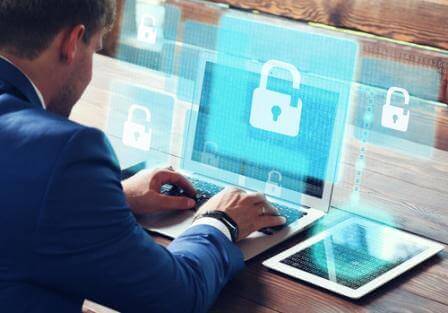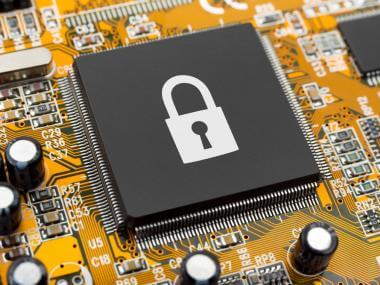Why We Need Encryption
What role does encryption play in the political arena?
Some horrible things have been happening in the world. From terrorist attacks, to mass shootings, the world seems like a much smaller and scarier place to live. How do we as a society prevent tragedies like this from occurring? How should we balance privacy and security going forward? Let’s talk about encryption, the role it is playing in the political arena, and what it means to you.
What Is Encryption?
Let’s first cover what encryption actually is. I’ve done a full episode on what exactly encryption is which you can find Click here for more information. But for a quick refresher, encryption is a way of scrambling data, so that the only way to unscramble it is if you know the password. Let’s say you are passing notes in class (kids, before texting this is how your parents communicated in the classroom). If the teacher were to catch you passing notes in class, she could easily read the note. However, if you would have encrypted it, she would just see random letters unless she knew the code.
Encryption is used to keep communication private. Typically encryption is used to protect all sorts of communication, but it’s used very heavily across the Internet for several reasons.
Why Is Encryption in the News?
Due to recent terrorist activities and mass shootings, governments and law enforcement are calling for a ban on “strong encryption.” This is because the criminals in some of these attacks used apps or software that encrypted data or communications. This encryption in some circumstances was too difficult for law enforcement to break, and thus aided the criminals.
This has led to many politicians and high ranking law enforcement officials to call for an end to encryption. It may seem like the most reasonable argument: if criminals are going to use encryption, then we should ban it altogether. However, in my opinion, this is a very slippery slope. Encryption protects the communications of whoever is using it, and there is no way to mandate that only law abiding citizens can use encryption.
The catch here is that by eliminating encryption for criminals, we eliminate encryption for everyone, which may leave us much more vulnerable than we were before.
Why Do We All Need It?
This naturally leads to the next question. Why does everyone need encryption? Well let’s start with the extreme end of the spectrum. There are journalists, spies, and various other types of people that rely on encryption to communicate securely with the rest of the world. In circumstances where a country, political party, or group of criminals are intercepting communications encrypting a message could quite literally mean the difference between life and death.
Oftentimes the argument here is, “Well then let them have encryption if people are in those situations.” If only it were that easy! After all, if only really important communications were encrypted, they would then be much more easily identifiable. It would be the equivalent to mailing a letter in a read envelope. It would stick out like a sore thumb amongst every other white letter. This would draw attention, and even if the person intercepting the letter couldn’t read it. It would most certainly paint a target on the person sending and receiving it.
If all communication were encrypted, then there would be no way of distinguishing a highly sensitive communication, like your family’s secret tamale recipe, from something less important, like a simple text message.
Now the amount of people that rely on encryption for safety are certainly the minority. Most people use the Internet for shopping, keeping in touch with family and friends, watching hilarious YouTube videos, and just general everyday things. If you fall in this camp, you may think to yourself, “I have nothing to hide! I certainly don’t need encryption.” Well that’s where you may be wrong. After all, if you have nothing to hide then you wouldn’t mind giving out your social security number, bank account information, and password to anyone on the street.
Encryption allows you to check Facebook, access your banking records online, access your medical records, and protect your password when you log in to a website. Without encryption, hackers would have no problem breaking into pretty much every corner of the Internet.
Criminals and hackers aren’t the only ones that would have a field day with the wealth of information that would become available if no encryption were in place. Governments, companies, and even individuals could collect a huge amount of information about anyone, who they are, where they’ve been, and what they’re looking at. Companies would love this data to target ads, see market trends, and even perform corporate espionage.
What Is the Government Doing About It?
The government’s response to terrorists and criminals is that software manufacturers such as Google, Apple, and Microsoft should create a back door that allows the government access into any encryption. This may seem pretty reasonable on the surface. We will only let the government have a key to the back door. Unfortunately, that’s not how encryption works. If you create a backdoor in software for the government, there’s no way to keep a criminal from using that very same backdoor.
Luckily though, no matter what one single government does encryption is here to stay. While a government may outlaw encryption, or certain forms of it, there is no way to limit open source encryption technology that is available somewhere else in the world. Heck, without knowing it, you probably use encryption every day when you log into a website or perform a simple Google search.
Be sure to check out all my earlier episodes at techtalker.quickanddirtytips.com. And if you have further questions about this podcast or want to make a suggestion for a future episode, post them on Facebook QDTtechtalker.
Until next time, I’m the Tech Talker, keeping technology simple!
You May Also Like…






